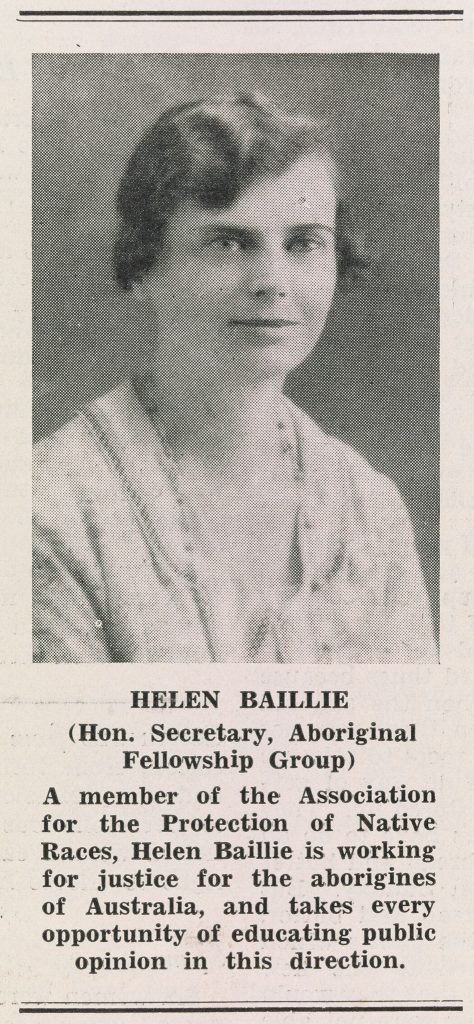Helen Baillie
(c. 1893–1970)

Helen Baillie was one of the associate members of the Australian Aborigines’ League (associate membership being open to non-Aboriginal people) and one of the organisation’s most important allies.
Single and financially independent, Baillie was a fervent Christian and left-winger, and the secretary of a small white organisation in Melbourne, the Aboriginal Fellowship Group. She was instrumental in helping Cooper in the early years of his political campaign in Melbourne, sharing with him the names of relevant agencies and officials in Aboriginal affairs in the federal government and putting him in touch with other sympathetic white figures whom she knew personally, most notably Ernest Gribble, William Morley, Morley’s son Norman, who was the secretary of a white Christian humanitarian organisation in Western Australia, the Australian Aborigines’ Amelioration Association, and Sir John Harris, the secretary of the Anti-Slavery Society, based in London. She was almost certainly responsible for the legwork that facilitated a meeting of the League’s members with the Minister for the Interior Thomas Paterson in January 1935 [hyperlink to this document in the Archive].
While Baillie was often paternalistic, like practically all the whites who sought to help Aboriginal people at this time, she was aware that the relationship between white campaigners like herself and Aboriginal campaigners such as Cooper could be fraught. She did not assume she had the right to represent Aboriginal people but believed instead that whites could best help Aboriginal people by assisting them to press for their rights.
